Filter by
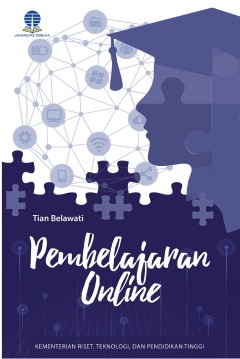
Pembelajaran online
Dunia berputar dengan putaran yang terasa semakin cepat. Tentu bukan putaran planet bumi yang semakin cepat, tetapi perkembangan yang terjadi dalam kehidupan kita. Perkembangan teknologi yang sekarang disebut-sebut tengah mengalami revolusi industri ke-4 telah berimbas ke segala sendi kehidupan kita. Bahkan jauh sebelum itu, perkembangan teknologi secara pasti telah mengubah berbagai dimensi ke…
- Edition
- -
- ISBN/ISSN
- 9786023927036
- Collation
- ix, 162p. : ill.
- Series Title
- -
- Call Number
- 371.358 BEL p
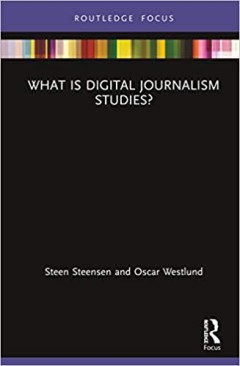
What is digital journalism studies?
What is Digital Journalism Studies? delves into the technologies, platforms, and audience relations that constitute digital journalism studies’ central objects of study, outlining its principal theories, the research methods being developed, its normative underpinnings, and possible futures for the academic field. The book argues that digital journalism studies is much more than the study of …
- Edition
- -
- ISBN/ISSN
- 9780429259555
- Collation
- xii, 124p.: ill.
- Series Title
- -
- Call Number
- 070.1 STE w
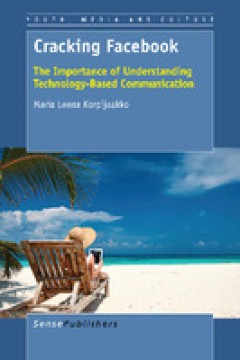
Cracking facebook : the importance of understanding technology-based communic…
This book presents a Facebook study on members of the Cusp Generation, or those born before the “great digital divide” of 1995. This delineation allows for a discussion on the possible socio-cultural implications of Facebook use for people of all ages. Members of the Cusp Generation are in a unique position as “part digital natives” to easily acquire and use new media technologies, whil…
- Edition
- -
- ISBN/ISSN
- 9789463002110
- Collation
- IX, 153 p.
- Series Title
- Youth, Media, and Culture Series
- Call Number
- 370 LEE c
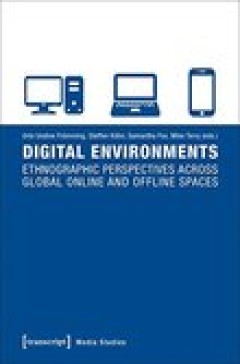
Digital environments : ethnographic perspectives across global online and off…
Digital technology already has permeated the physical world. Devices such as smartphones, tablets or wearables and online venues like virtual worlds and social networks have penetrated every part of our lives. The contributions to this volume apply innovative forms of ethnographic research to the digital realm. They examine the emergence of new online communities around Greenlandic news blogs o…
- Edition
- -
- ISBN/ISSN
- 9783839434970
- Collation
- 267 p.
- Series Title
- -
- Call Number
- 303.4833 DIG d
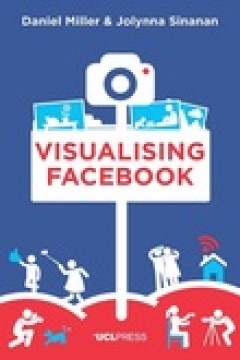
Visualising facebook : a comparative perspective
Since the growth of social media, human communication has become much more visual. This book presents a scholarly analysis of the images people post on a regular basis to Facebook. By including hundreds of examples, readers can see for themselves the differences between postings from a village north of London, and those from a small town in Trinidad. Why do women respond so differently to becom…
- Edition
- -
- ISBN/ISSN
- 9781911307402
- Collation
- IX, 225 p.
- Series Title
- Why We Post
- Call Number
- 004.0846 MIL v
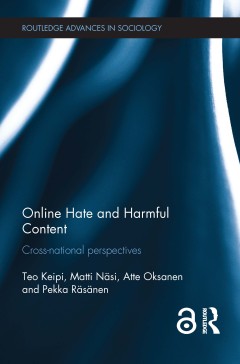
Online hate and harmful content : cross-national perspectives
Over the past few decades, various types of hate material have caused increasing concern. Today, the scope of hate is wider than ever, as easy and often-anonymous access to an enormous amount of online content has opened the Internet up to both use and abuse. By providing possibilities for inexpensive and instantaneous access without ties to geographic location or a user identification system, …
- Edition
- -
- ISBN/ISSN
- 9781315628370
- Collation
- x, 143p. : ill.
- Series Title
- -
- Call Number
- 302.3 ONL o
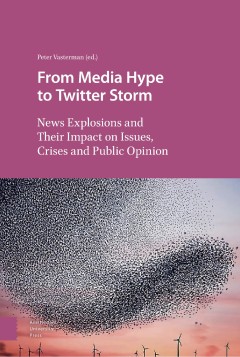
From media hype to Twitter storm : the dynamics of self reinforcing processes…
The word media hype is often used as rhetorical argument to dismiss waves of media attention as overblown, disproportional and exaggerated. But these explosive news waves, as well as - nowadays - the twitter storms, are object of scientific research, because they are an important phenomenon in the public area. Sometimes it is indeed ‘much ado about nothing’ but in many cases these media sto…
- Edition
- -
- ISBN/ISSN
- 9789048532100
- Collation
- 401p. : ill.
- Series Title
- -
- Call Number
- 070.4 FRO f
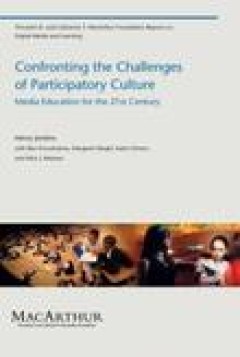
Confronting the challenge of participatory culture: media education for the 2…
Many teens today who use the Internet are actively involved in participatory cultures—joining online communities (Facebook, message boards, game clans), producing creative work in new forms (digital sampling, modding, fan videomaking, fan fiction), working in teams to complete tasks and develop new knowledge (as in Wikipedia), and shaping the flow of media (as in blogging or podcasting). A gr…
- Edition
- -
- ISBN/ISSN
- 9780262513623
- Collation
- xv, 129p.
- Series Title
- -
- Call Number
- 302.23 JEN c
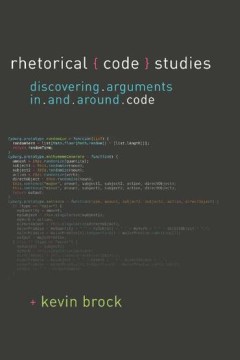
Rhetorical code studies : discovering arguments in and around code
Winner of the 2017 Sweetland Digital Rhetoric Collaborative Book Prize Software developers work rhetorically to make meaning through the code they write. In some ways, writing code is like any other form of communication; in others, it proves to be new, exciting, and unique. In Rhetorical Code Studies, Kevin Brock explores how software code serves as meaningful communication through which softw…
- Edition
- -
- ISBN/ISSN
- 9780472131273
- Collation
- xvii, 213p. : ill.
- Series Title
- -
- Call Number
- 005.13 BRO r
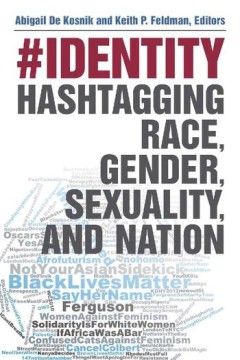
#Identity : hashtagging race, gender, sexuality, and nation
"Since its launch in 2006, Twitter has served as a major platform for political performance, social justice activism, and large-scale public debates over race, ethnicity, gender, sexuality, and nationality. It has empowered minoritarian groups to organize protests, articulate often-underrepresented perspectives, and form community. It has also spread hashtags that have been used to bully and …
- Edition
- -
- ISBN/ISSN
- 9780472074150
- Collation
- xi, 365p. : ill.
- Series Title
- -
- Call Number
- 302.30285 HAS h
 Computer Science, Information & General Works
Computer Science, Information & General Works  Philosophy & Psychology
Philosophy & Psychology  Religion
Religion  Social Sciences
Social Sciences  Language
Language  Pure Science
Pure Science  Applied Sciences
Applied Sciences  Art & Recreation
Art & Recreation  Literature
Literature  History & Geography
History & Geography